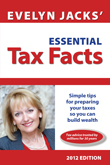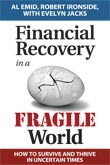Last updated: March 28 2012
Evelyn Jacks: Budgets, tax reforms and wealth management
With every federal budget, we anticipate the continued reform of personal and corporate tax systems. The March 29 budget is no different. If the age of eligibility for Old Age Security (OAS) is pushed back, Thursday's budget could be both historically significant and hugely unpopular (or so indicates Knowledge Bureau's polling).
You will do well to pay close attention to this budget and project its effects onto your retirement and estate plan.
In the aftermath of the global financial crisis, governments are forced to rein in spending and reduce deficits. So, you should be prepared for possible tax increases ó such as social benefit clawbacks, increased user fees or changes to our taxing framework, which is based on another significant tax reform introduced in 1969.
Canada's then-minister of finance, the Hon. E. J. Benson, not only proposed increases to personal and corporate taxes but also, most significantly, brought capital gains into taxable income. His reasons were interesting in the context of today's choices.
"The needs of the federal and provincial governments for money to do useful and important things are so great,î he began his proposed reforms, "that we cannot now afford to reduce the over-all revenues from personal and corporate income taxes.î
Over time, inclusion of net capital gains in taxpayers' income has added extensively to government coffers. In the first year ó the reforms took effect Jan. 1, 1972 ó it was estimated that single provision generated net government revenue of $60 million; by its fifth year of existence, it produced $245 million. Those were large sums for the times.
But Benson did something else: he recognized the punitive effect of including in income "irregularî sources of income that would push taxpayers into a higher tax bracket and cause taxes to be paid at a higher tax rate that year than in a normal year. The "General Income-Averaging Optionî ó which averaged out income and taxes payable over five years ó was introduced to help taxpayers avoid tax-rate spikes. Unfortunately, that provision was abolished years ago.
Benson's reforms were effective in their mission. They redistributed the income-tax burden and increased government revenue from personal and corporate taxes. The burden, however, landed squarely on the large, baby-boomer taxpayer base that was just graduating from university and beginning its work life.
Yet, despite high tax rates on both income and capital, boomers were incented to work in this country, rather than leave for more competitive tax jurisdictions. Most attempted to save for retirement, despite high taxation in the 1990s (which was needed to reduce previous governments' deficits and debt) and the debilitating effects of the recent global crisis.
Retiring boomers now need to count on what's left of their private savings, the Canada Pension Plan and the OAS to make it in a very different world. Unfortunately, heavily indebted federal and provincial governments once again face great needs to do important things.
The federal government will have to make significant choices come Thursday's budget. So may you, too. In fact, engaging with well-informed tax and financial advisors to mitigate any losses with sound tax and financial planning is a good first line of defense.
It's Your Money. Your Life. The degree to which the March 29, 2012, federal budget changes your tax burden will be of special interest. To find out what it means to you and your savings, please join the Knowledge Bureau Report team at http://www.knowledgebureau.com/ for our Special Budget Report. We'll be there to help you decipher Budget 2012.
Evelyn Jacks, president of Knowledge Bureau, is author of Essential Tax Facts 2012 and co-author of Financial Recovery in a Fragile World. To purchase your books, visit www.knowledgebureau.com/Books.asp.


